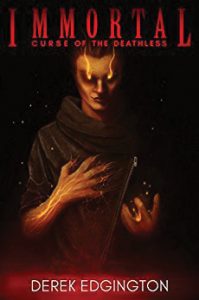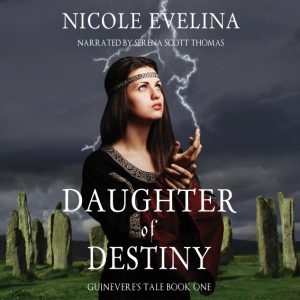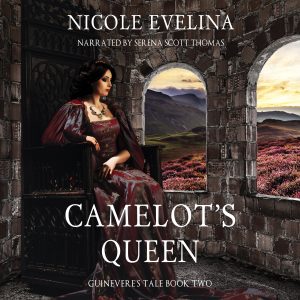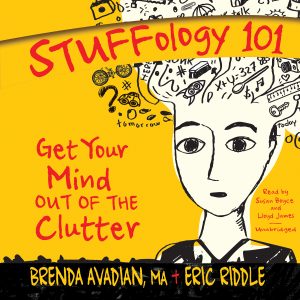PUBLISHED MAY 2017
by Deb Vanasse, Reporter,
IBPA Independent

Deb Vanasse
When it comes to growth and opportunity, audio is the new digital. Results from the most recent Audio Publishers Association (APA) annual sales survey show a fourfold increase in the number of audiobooks published between 2011 and 2015, as well as a whopping 24 percent increase in audiobook sales from 2014 to 2015.
In fact, for the past three years of the survey, the APA has reported double-digit growth in the industry—and it's expected to continue. In accounting for this expansive market, the association cites the increasing popularity of digital downloads and the elevated profile of audiobook formats.
By publishing reviews of audiobooks and connecting with listeners via newsletter, AudioFile has helped expand the profile of audio. What began in 1992 as a desktop newsletter is now a platform reaching approximately 200,000 listeners a month, notes AudioFile editor and founder Robin Whitten. Citing the fact that 55 million Americans listened to an audiobook in 2015, Whitten says independent publishing has a “real niche” in this market.
Libraries, too, are feeling the audiobook love. According to publisher account services manager Alexis Petric-Black, 55 million audiobooks were borrowed in 2016 from libraries via the OverDrive platform, an increase of 34 percent over the previous year.
In short, audiobook business is booming. By attending to the details of production, distribution, and promotion, independent publishers are getting handsome returns on their audiobook investments.
To Make an Audiobook
As entirely do-it-yourself projects, audiobooks rarely succeed. “You might be able to record something quickly and cheaply, but if the narrator is not well-suited to the material, it impacts the quality of the recording,” says APA Executive Director Michele Cobb. “There are many great voices and studios in the audio publishing industry who can ensure the audiobook produced is fantastic and that the text is well-matched to the voice, even when the turnaround time is tight.”
Narration is a multifaceted art that enhances the text and facilitates listener engagement. “Great audiobook narrators connect with the author’s intent and deliver that to the listener,” Whitten says. “They get behind the author’s words with intellectual and emotional understanding. Yes, they need a good voice that people will want to listen to, but it is much more than that. If someone notes a character’s ‘lyrical’ voice, the voice had better sound lyrical. If a highly charged emotional scene does not come off that way to the listener, then the narrator is not enhancing the text.”
While authors may be eager to record their own work, they often lack the requisite skills—and even the stamina—to do sit still and narrate, says Cobb. “Nor should authors assume that their experience at public readings will translate to audiobook narration,” Whitten adds. “Sustaining the tone and balance, and keeping the focus and flow, are no easy feat,” she explains.
Only professionally produced materials qualify for distribution through OverDrive, says Petric-Black, noting that source files must be 128-bit MP3 or better. And not every book is a good fit for the format. “A book that depends heavily on charts and graphs, maps, or tables rarely works in audio,” Whitten explains. “In fiction, it might be too many timeline changes or multiple points of view without clear dialogue tags.”
 Immortal: Curse of the Deathless
Immortal: Curse of the Deathless by Derek Edgington
When Derek Edgington decided to produce an audio version of his novel
Immortal: Curse of the Deathless (2016), he opted for the experienced voice of Nik Magill. Investing $1,200 in the project, Edgington was uncertain about whether he’d recoup his investment. “Thankfully, I did [break even], a few months later,” he says. “I’ve since made more than double the cost of production and make a steady profit on audiobook sales.”
Likewise, Lawson Gartner Publishing CEO Nicole Evelina invested in professional narration and production for three audiobooks she released in 2016—two from her Guinevere trilogy (
Daughter of Destiny,
Camelot’s Queen) and a standalone novel,
Been Searching for You.
“I auditioned quite a few actresses who had samples on ACX (The marketplace platform of Audible, an Amazon subsidiary) for my Guinevere books,” Evelina says. “As soon as I heard Serena Scott Thomas read, I knew she was my Guinevere. She came with her own producer, so that made my life easier.”
 Been Searching for You
Been Searching for You by Nicole Evelina
At $3,000 per title, Evelina’s investment was substantial, but she is pleased with the return. “I’ve made a good portion of that back in less than year,” she says. “I make more on my audio than on print and e-book combined.”
Publishers can also do well by selling audio rights to a company that produces and distributes the finished product. Intending only to explore her options, North Star Books publisher Brenda Avadian stopped by Blackstone Audio’s ALA (American Library Association) conference booth to chat about
STUFFology 101, a book on decluttering that she co-authored with Eric Riddle.
Blackstone was interested. “Our VP of sales saw the value of this book for audio, as decluttering is a timeless topic and there has also been a trend toward downsizing,” says Amanda Casserly of Blackstone’s sales and marketing department. Avadian licensed her audio rights in an agreement that included payment of an advance against royalties.
The resulting project was a collaboration, says Avadian. North Star Books participated with Blackstone in auditioning narrators, making production decisions, and marketing the title, which topped the
Publishers Weekly audiobooks bestseller list in September 2015. Avadian has subsequently earned out her advance.
Publishers interested in selling audio rights can query Blackstone Audio using the contact form on their website. “We have an experienced acquisitions team that reviews titles under consideration,” Casserly says. “Quality of content, sales history for past books by the author or for similar genre titles, and timeliness of the topic are among the criteria they consider.”
Audio Distribution
When audio rights are licensed, the acquiring company handles distribution. Publishers who create their own audiobooks need to sort through distribution options on their own. Cobb advises they begin the process by determining what markets they most want to reach—retail, customers funneled through the company website, library—and then selecting a distribution method that best fits their workflow, budget, and reach.
Publishers with large lists may benefit from direct distribution through various retailers, but Cobb notes that the logistics can be overwhelming. Companies such as Firebrand Technologies can ease the burden by distributing metadata and digital content in the proper format to hundreds of retailers.
Breadth and depth of the catalog as well as anticipated sales volume are among the criteria OverDrive evaluates in deciding whether to offer distribution terms to publishers. For those with smaller lists, Petric-Black notes the advantages of an aggregate audiobook distributor such as Author’s Republic, which distributes to over 30 channels including OverDrive, iTunes, and Audible.
Edgington and Evelina distribute their titles through ACX/Audible, which offers options for exclusive (Audible, Amazon, and iTunes) or expanded distribution. “It was all seamless through AXC,” Evelina says. “I couldn't ask for an easier experience.”
Promotion Is Key
 STUFFology101
STUFFology101 by Brenda Avadian & Eric Riddle
Whether you do it yourself, license the rights, or hire an audio production company, Avadian says promotion is the key to audiobook success in a crowded marketplace. For the
STUFFology101 audiobook, she has offered free copies and discounted copies, and she connects with friends and family through social media and her blog to sustain the momentum. She also writes articles that connect with the book, including a piece earlier this year for
US News called “Helping Mom and Dad Declutter.” She and Blackstone collaborate on promotion, each tagging off the other’s efforts.
When Evelina’s audiobooks hit the market, she was busy releasing four titles in seven months—a schedule she doesn’t recommend—and promotion consisted only of blog, newsletter, and website alerts. She attributes the book’s initial success to the quality of the content, the narration, and the name recognition of the narrators. When her work schedule eased, she also ran a “very successful” promotion through Audiobook Boom.
As with books in other formats, reviews can be an effective marketing tactic. To submit for review in AudioFile, publishers should e-mail a link to the title on Audible or a download link to the media file via a file sharing platform such as Dropbox. A high-resolution cover image (300 dpi) should accompany the submission.
“Keep in mind that we are presented with several thousand audiobooks for review every month,” Whitten says. “We can only review about 200. We select titles based on what the editors consider interesting for the AudioFile audiences.” Fee-based advertising is also available, including a package designed for independent presses.
An Audio Future
“Now that I know about how much everything costs, I am budgeting it in for all future releases,” Evelina says. “To me, audio really is the way of the future, partly because we are all so busy and that is a way we can ‘read’ while on the go. Couple that with me being a huge audiobook fan, and it is a must-have in my publishing arsenal. It’s passive income that reaches a whole different audience from print/e-book. Other than the initial outlay, there’s not a downside.”
Edgington advises publishers to research and assess their audiobook options. “Do your own homework. Know the market. Test out what works and doesn't work,” he says.
A believer in collaboration, Avadian plans to pursue audio rights licensing for future projects. “Solo efforts are like silos—for grain storage,” she says. “If you want to see the light of day, collaboration is where it’s at. Two or more parties are able to feed off of one another, giving a title more energy to rise up in a crowded marketplace.”
Armed with tactics for production, distribution, and promotion, publishers can expand their audience reach and enhance their bottom lines by joining this growth sector of the industry. “Audio is a strong revenue source and continues to see excellent growth,” Cobb says. “With consumers being busy, the hands-free option of reading with your ears is a great one that more and more people are trying.”
Title Match
A list of the audiobook titles mentioned in this article
 Immortal: Curse of the Deathless
Author:
Immortal: Curse of the Deathless
Author: Derek Edgington
Publisher: Derek Edgington Productions
Narrator: Nik Magill
IBSN: 978-0997673302
 Daughter of Destiny
Author:
Daughter of Destiny
Author: Nicole Evelina
Publisher: Lawson Gartner Publishing
Narrator: Serena Scott Thomas
ISBN: 978-0996763103
 Camelot’s Queen
Author:
Camelot’s Queen
Author: Nicole Evelina
Publisher: Lawson Gartner Publishing
Narrator: Serena Scott Thomas
ISBN: 978-0996763134
 Been Searching for You
Author:
Been Searching for You
Author: Nicole Evelina
Publisher: Lawson Gartner Publishing
Narrator: Ashley Clements
ISBN: 978-0996763165
 STUFFology 101
Author:
STUFFology 101
Author: Brenda Avadian
Publisher: Blackstone Audio Inc.
Narrator: Susan Boyce and Lloyd James
ISBN: 978-0963275257
Deb Vanasse is the co-founder of 49 Writers, founder of the author co-op Running Fox Books, and the author of 17 books. Among her most recent are Write Your Best Book
, a practical guide to writing books that rise above the rest, and What Every Author Should Know
, a comprehensive guide to book publishing and promotion, as well as Wealth Woman: Kate Carmack and the Klondike Race for Gold
.
Learn more about this topic: